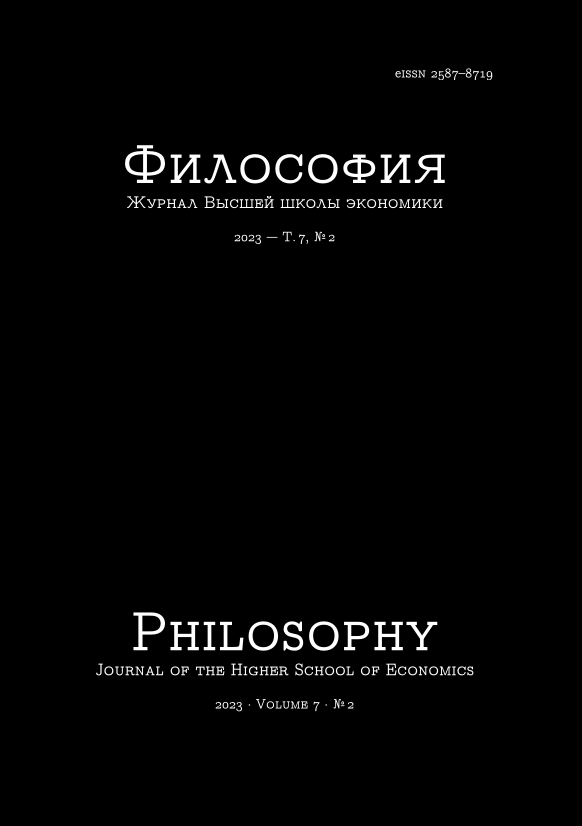Leo Tolstoy and the Possibility of Mythological Thought
Abstract
The article develops an approach to the analysis of thought based on the philosophical interpretation of the heritage of Leo Tolstoy as myth-making. It helps to understand living human thought (inevitably lost if one relies only on speculative objectification) to get closer to the mystery of its meaningfulness and connection with reality. The special urgency of this “eternal” mystery results from the essence and foundations of thought remaining incomprehensible today, but the very idea of thought has become amorphous and doubtful. In this situation, a critical analysis of some conceptions of thought (naturalistic, intellectualistic, etc.) reveals their insufficiency and justifies the need for a different understanding of thinking. The work aims to highlight the event-based nature of thinking in empathy with Tolstoy and his characters. Tolstoy is the creator of myths: by myth-making reality and man participate in the events of thought, where it is impossible to distinguish and contrast what is happening in the “external” world and the very thought of man. An event cannot be explained either mechanically or teleologically: it is thought of as not given or pre-given but self-fulfilling unity of the world and man. Thought, like a myth, can be understood as the presence of reality in a person's life, its self-expression and self-enrichment.
Downloads
Copyright (c) 2023 Philosophy. Journal of the Higher School of Economics

This work is licensed under a Creative Commons Attribution-NonCommercial 4.0 International License.






